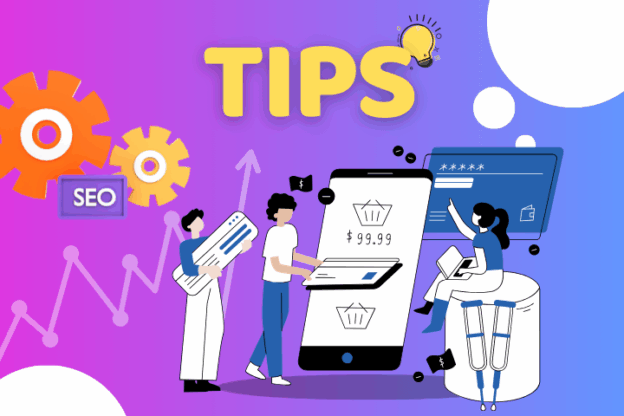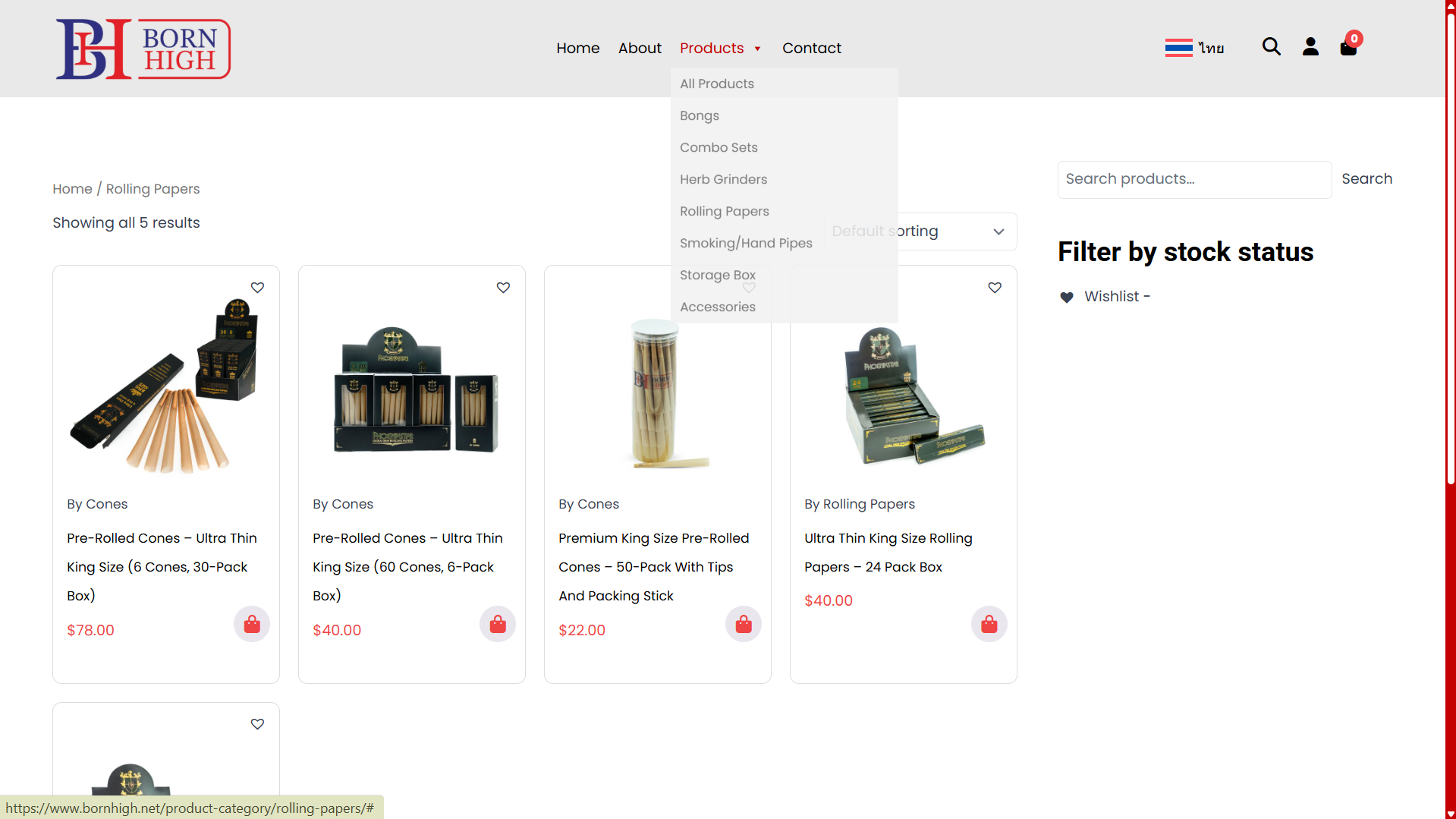Ecommerce SEO Tips : A Must-Read Guide for Online Stores That Want Real Sales

Have you ever set up an online store, added product images, written descriptions, launched promotions, and yet, when people visit your site, they don’t buy? SEO for ecommerce isn’t just about getting your site to rank on the first page of Google; it’s about designing a clear path that guides potential customers from search to product pages, and ultimately to completing a purchase.
From Digital Agency Bangkok’s experience working with various online businesses, we’ve found that optimizing page structures, creating content that answers buyers’ questions, and implementing correct technical SEO can truly improve conversion rates not just increase traffic. This article will walk you through the immediate fixes and long-term strategies that can help your eCommerce website generate real sales. Let’s see where to start.
Why eCommerce SEO Matters
Many eCommerce website owners start with Facebook Ads or Google Ads, which give quick results. However, once the budget stops, the traffic stops as well. Unlike paid advertising, SEO for e-commerce lays a foundation for long-term growth. A well-optimized site attracts customers who are actively searching and ready to buy.
Think about someone searching for running shoes. They might type, “affordable women’s running shoes” into Google. The site that appears on the first page has an immediate chance to convert because the customer is not just browsing ,they are ready to purchase. Having your website appear in that position gives you a sustainable advantage over relying solely on ads.
Another reason ecommerce SEO is critical is the fierce competition in online markets. From small boutiques to large retailers and marketplaces, everyone is competing for attention. If your website can establish credibility and rank high, even smaller brands can compete with bigger players.
Key Factors That Make eCommerce SEO Effective
- Clear Site Structure
An eCommerce website should have a well-organized category and sub-category structure. This makes it easier for customers to find products and helps Google understand your website’s content better. - Complete Product Pages
Product pages are the heart of doing SEO. Including unique descriptions, relevant keywords, high-quality images, and customer reviews helps your pages rank higher while building trust with potential buyers. - User Experience (UX) and Site Speed
Slow-loading websites drive customers away. Google also uses page speed as a ranking factor, especially for mobile users. If your eCommerce website isn’t mobile-friendly, you risk losing both SEO rankings and sales. - Proper Technical SEO
Implementing sitemap, canonical tags, robots.txt, and schema markup ensures that Google indexes your products correctly and allows them to appear in Rich Results, attracting more clicks. - Quality Content and Backlinks
Creating content related to your products, such as reviews or how-to guides, brings continuous traffic. Backlinks from reputable websites further strengthen your SEO performance.
Actionable eCommerce SEO Strategies
1.Optimize Category Pages
Category pages are often where customers start searching. Using main keywords in titles, meta descriptions, and content for example, “Women’s Running Shoes” or “Student Laptops” helps your eCommerce website rank higher and attract quality traffic.
eCommerce website with good design and seo
2.Use Long-tail Keywords on Product Pages
Specific searches like “20-inch waterproof travel bag” or “budget smartphone with great camera” are usually from buyers ready to purchase. Optimizing product pages for these long-tail keywords improves conversion rates.
3.Create Blog Content to Support Sales
SEO articles like “How to Choose the Right Air Purifier for Your Room” or “5 Tips to Make Your Running Shoes Last Longer” attract research-oriented customers and link to relevant products, adding value beyond the products themselves.
4.Enhance Technical SEO
Proper use of canonical tags, sitemaps, robots.txt, and schema markup allows Google to understand product details like price, stock, and reviews, increasing the chance of appearing in Rich Results.
5.Internal Linking and Cross-selling
Linking related products or categories (e.g., recommending a “charging cable” on a smartphone product page) improves SEO and increases Average Order Value (AOV).
6.Local SEO (If You Have a Physical Store)
For online stores that also have a physical location, implementing Local SEO helps nearby customers discover your business more easily. Some strategies to consider include
- Register your business on Google Business Profile and provide complete information such as address, phone number, opening hours, and photos.
- Use location-specific keywords, for example, “women’s running shoes Bangkok” or “coffee shop near BTS Phrom Phong.”
- Create local content, such as articles about branch-specific promotions or stories related to the local community.
- Encourage customer reviews to build credibility and improve your Google ranking.
Implementing Local SEO increases the chances of ready-to-buy customers finding your store, both online and offline. This can boost overall sales and strengthen your brand presence in the local area.
Common Mistakes Online Store Owners Make
- Copying Product Content from Suppliers
Many eCommerce websites copy product descriptions directly from suppliers. Google considers this duplicate content, which lowers rankings and reduces discoverability. - Not Optimizing Images or Adding Alt Text
Large images slow down page load times, harming both SEO and UX, especially on mobile. Properly sized images with descriptive alt text help Google understand your products and improve image search visibility. - Neglecting Internal Linking
Linking products to categories or related items is essential for eCommerce SEO. It helps Google understand your site structure and encourages customers to explore more products. - Relying Solely on Paid Ads
Focusing only on SEM drives immediate traffic, but it stops when budgets run out. eCommerce SEO builds sustainable traffic, reduces advertising costs, and drives long-term sales. - Ignoring User Experience (UX)
Cluttered pages, small “buy” buttons, or complicated checkout processes make customers abandon purchases and reduce SEO effectiveness. Google rewards websites that offer a smooth and engaging user experience.
Conclusion
eCommerce SEO is more than inserting keywords or ranking on Google. It establishes a foundation for your eCommerce website to attract ready-to-buy customers, generate consistent sales, and reduce dependence on paid advertising.
When your website has a clear structure, fully optimized product pages, correct technical SEO, and content that draws visitors, you’ll see improvements in both search rankings and revenue over time.
If you want your online store to rank on Google and drive real sales, Digital Agency Bangkok is ready to help. We provide full-service SEO solutions, from optimizing site structure and creating quality content to monitoring results and improving performance.
Start putting your business on Google’s first page today.
Contact Digital Agency Bangkok
Phone: 098-7655-243 or 098-7655-701
Email: [email protected]



